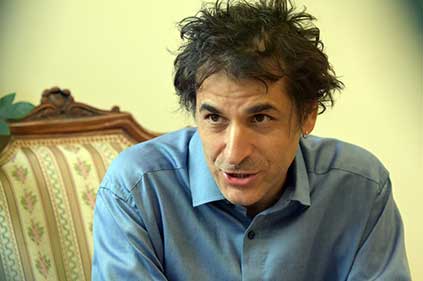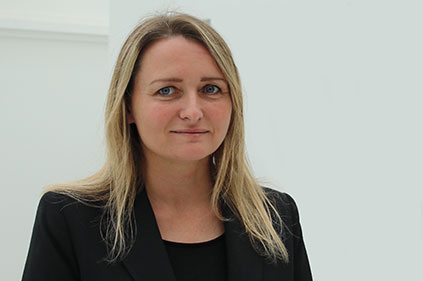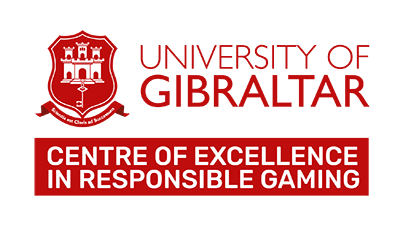We are pleased to announce that the 9th International Conference on Behavioral Addictions (ICBA) is due to take place on 8-9-10 July 2024 in Gibraltar.
This conference is the annual meeting of the International Society for the Study of Behavioral Addictions (ISSBA) that aims to assemble specialists working in the field of behavioral addictions to provide a venue for face-to-face networking, as well as a forum for presenting and discussing the most recent research results of the field.
We look forward to welcoming researchers, clinicians, social workers, health service professionals, people with lived experience and everyone else who is interested in behavioral addictions whatever their perspective is.
Join us in Gibraltar between July 8-9-10, 2024.
Yours sincerely,




Registration fee (deadlines are given in GMT+0 23:59):
| Early bird | Normal | Late / onsite | |
|---|---|---|---|
| ISSBA member | 430 EUR | 530 EUR | 630 EUR |
| Non-member | 540 EUR | 640 EUR | 740 EUR |
| Student ISSBA member | 290 EUR | 390 EUR | 490 EUR |
| Student non-member | 340 EUR | 440 EUR | 540 EUR |
Not included in the registration fee:
The use of the reduced registration fee is subject to the payment of the membership fee (for 2024) of the International Society for the Study of Behavioral Addictions (ISSBA). (Those who are already members are expected to pay the 2023 membership fee as well.)
The Journal of Behavioral Addictions offers a 15% discount for corresponding authors who are members of the International Society for the Study of Behavioral Addictions (ISSBA).
The registration fee includes:
Please note that we can only refund 40% of the registration fee if cancelled officially before the 30 April 2024. No refund is possible if cancellation is made at a later date.
ADHD (Attention-Deficit and Hyperactivity Disorder) / Body dysmorphic disorder / Buying-shopping addiction (Compulsive buying) / Compulsive sexual behavior disorder (hypersexuality) / Eating disorders / Excoriation (Skin-Picking) Disorder / Exercise dependence / Food Addiction / Gambling Disorder / Gaming disorder (computer and video games, online gaming) / Hoarding Disorder / Hypochondriasis / Intermittent Explosive Disorder / Internet addiction / Kleptomania / Mobile Phone Addiction / Muscle dysmorphic disorder / Obsessive-compulsive disorder / Pornography Addiction / Pyromania / Social Media Addiction / Trichotillomania (Hair-Pulling Disorder) / Work Addiction
Please, note that you can only be a presenting author on a maximum of two papers.
Information for oral presentations
Information for symposia
Information for mini talks
Information for Poster presentation
Abstract submission deadline is extended: 11 December 2023.
Abstract submission happens via an external tool: ConfTool. There, you may create a user account to enter, submit your abstract(s) and access the results of the reviewing process. To do so, please click on the "Click here" button.

Dr. Matthias Brand is a full professor of General Psychology: Cognition at the University Duisburg-Essen, Germany. He is also director of the Center for Behavioral Addiction Research (CeBAR), University Duisburg-Essen, Germany, and director of the Erwin L. Hahn Institute for Magnetic Resonance Imaging, Essen, Germany. His research interests concentrate on neurobiological and psychological mechanisms underlying behavioral addictions. He is a speaker of the DFG-funded Research Unit 2974 “Affective and cognitive mechanisms of specific Internet-use disorders (ACSID)”. He is a board member of the International Society for the Studies of Behavioral Addictions and associate editor of the Journal of Behavioral Addictions.

Dr. Bőthe works at the Department of Psychology at the University of Montréal (Canada) as an assistant professor and is the director of the Sexuality, Technology, and Addictions Research Lab. She focuses on addictions, compulsive sexual behaviors, problematic and non-problematic pornography use, and online behaviors. She has published more than 100 international research articles in leading scientific journals and 15 book chapters. She is an Associate Editor of the Journal of Behavioral Addictions and a member of the editorial boards of other top-tier journals (e.g., Journal of Sex Research, Archives of Sexual Behavior).

Dr. Mark Griffiths is a Chartered Psychologist and Distinguished Professor of Behavioural Addiction at the Nottingham Trent University, and Director of the International Gaming Research Unit. He has spent 37 years in the field and is internationally known for his work into gambling, gaming, and behavioral addictions. He has published over 1500 peer-reviewed research papers, six books, over 200 book chapters, and over 1500 other articles. He has won 25 national and international awards for his work including the John Rosecrance Prize (1994), Joseph Lister Prize (2004), US National Council on Problem Gambling Lifetime Research Award (2013), ISSBA Lifetime Achievement Award for the Study of Behavioral Addictions (2023). He also does a lot of freelance journalism and has appeared on over 3500 radio and television programs, and written over 400 articles for national and international newspapers and magazines.

Professor Emmanuel Kuntsche, the Director of the Centre for Alcohol Policy Research (CAPR) at La Trobe University Melbourne (Australia), is an expert in the intergenerational transmission of alcohol-related cognition from early childhood into adolescence. Currently, he is investigating alcohol exposure in digital media with machine learning algorithms he has developed with this team. He has conducted or contributed to more than 60 national and international research projects and has received career awards and personal funding from major agencies in Australia, Germany, the Netherlands, Switzerland, and the international Kettil Bruun Society. Emmanuel has had editorial appointments at nine international journals (currently Addiction, Drug and Alcohol Review, European Addiction Research, the International Journal of Mental Health and Addiction, and the Journal of Behavioural Addictions).

Gemma Mestre-Bach is a Graduate in Psychology from the University of Barcelona with a Master's degree in Clinical Psychology and in Sexual and Couple Therapy from the European Foundation, a Master's degree in Third Generation Therapies from the Valencian International University, and a Master's degree in Criminological and Victimological Intervention from the Miguel Hernández University, as well as a Ph.D. in Medicine and Translational Research from the University of Barcelona. She is currently working as a postdoctoral researcher at the International University of La Rioja (Spain). She has more than 100 articles about behavioral addictions published in international journals.

Dr. Sabrina Molinaro is the Research Director at the Italian National Research Council, where she leads the Laboratory of Epidemiology and Research on Health Services. Since 2016, she has been the coordinator of the European School Survey Project on Alcohol and Other Drugs (ESPAD), the largest transnational research project in Europe. This project provides data every four years on substance use and risk behaviors among adolescents, such as gambling, gaming, and problematic internet use. For over 10 years, she has been studying the spread of behavioral addictions through various sources of information, surveys, economic data, and clinical data. The crucial aspect of her research is to promote dialogue among diverse disciplines with the aim of integrating different skills and heterogeneous data sources. Her research can be summarized in three main areas: Population Studies to Monitor Health Risk Behaviors in Hidden Populations (e.g., individuals with substance use disorders, pathological gamblers); Development of Analysis Models for the Healthcare System and Precision Medicine; Evaluation of Health Policies through Innovative Econometric Models. She has published more than 100 international research articles in leading scientific journals and numerous book chapters. Dr. Molinaro has conceived and directed over 50 research projects, including competitive projects at the European and national levels. Additionally, she has established numerous collaborative projects with the European Monitoring Centre for Drugs and Drug Addiction (EMCDDA) and the Pompidou Group of the Council of Europe.
Gibraltar is a small British overseas territory located at the southern tip of Spain, overlooking Morocco across the Strait of Gibraltar. The tiny 6.8 sq km territory is dominated by the iconic 426m high limestone Rock formation. Gibraltar has a mild Mediterranean climate with hot, dry summers and cooler, wetter winters. English is the official language, but Spanish is also widely spoken along with the local Yanito dialect. Gibraltar is a strategic point connecting Europe and Africa, with its British roots and Spanish influences making it a unique tourist destination.
For more information please check this link:
https://www.visitgibraltar.gi

ICBA 2024 will be hosted by the University of Gibraltar, located at the southern tip of Gibraltar.
Address:
Europa Point Campus
Gibraltar
GX11 1AA
The University is easily accessible by Bus No. 2 (stop “Europa Point”) or by taxi.
Gibraltar has its own airport, with daily flights from the UK.
Arriving through Malaga Airport (Spain) is also an alternative. The Spanish-Gibraltar border is easily accessible from Malaga Airport by bus or taxi:
When crossing the land border into Gibraltar, passport or ID card is needed. For those who are not EU residents, passports will need to be stamped on entry and on leaving Gibraltar. Non-EU residents visiting Gibraltar should also check if a visa is required for entry based on nationality.
Taxi: If there are no taxis outside the airport / by the Gibraltar side of the border call +350 200 70052. A taxi will take approximately 15 minutes to get to the University and should cost between £15-20.
Bus: Bus No. 5 from the airport/border goes to Market Place, where all other bus services are accessible.
The network of the Gibraltar Bus Company follows seven bus routes, operating seven days a week, morning to evening, and are numbered as routes 1, 2, 3, 4, 7, 8 and 9. Each route operates on a different schedule and frequency. A list of routes and their associated schedules are available at www.gibraltarbuscompany.gi.
A single night bus route operates from 9:15 p.m. to 2:00 a.m. but only on Friday and Saturday evenings.
Cost:
Tickets can be bought on the bus. It is advisable to have coins with you to buy tickets as the drivers might not have change. Credit/debit cards are not accepted.
Please note that buses to the border/airport (No. 5 and 10) are operated by a different company (Calypso Company). Gibraltar Bus Company Day Pass is not valid on these buses. Cost of a single ride is £1.6 https://citibus.gi
The number for the Gibraltar taxis service is +350 200 70052. Taxis are white with a yellow number plate and will have their taxi licence on display. Switchboard operators will speak English and Spanish. Not all taxis accept credit card therefore, cash (GBP) will be the recommended option.
Note, Ubers do not operate in Gibraltar.
The Gibraltar pound (currency sign: £; banking code: GIP) is the currency of Gibraltar. The British pound sterling notes and coins are accepted and circulate mixed with locally issued Gibraltarian notes and coins of the same value in pounds and pence. Please note that locally issued Gibraltarian notes and coins are not accepted in the UK. Debit cards and all major credit cards are widely accepted in Gibraltar. ATM machines are available around Gibraltar. However, contactless payments are also an option.
In Gibraltar, the standard voltage is 240 V and the frequency is 50 Hz. You can use your electric appliances in Gibraltar, if the standard voltage in your country is in between 220 - 240 V (in the case of the UK, Europe, Australia and most of Asia and Africa).
The power plug and sockets are of a type G (three pin plug / UK plug). Travel adapters may be necessary and can be purchased from most travel shops and supermarkets.
Central European Summer Time (CEST) (UTC +2)
The international code for Gibraltar is +350.
Overall Gibraltar is considered to be a safe place from the perspective of crime and violence.
These are 24-hour service emergency numbers; we truly hope no one will need these:
The list of our hotel partners, offering special rates for the ICBA attendees, and the details of the booking procedures can be found below. Please note that attendees will need to book and pay their accommodation directly with the hotels. The special rates will only be applied when following the guidelines below.
The special offers for the ICBA are available for a limited time and for a limited number of rooms. See the end of each offer below. As Gibraltar is a small jurisdiction with a limited number of hotel beds, and July is a peak tourist season, we strongly suggest making a hotel reservation as soon as possible (even as early as November 2023).





Budapest (Hungary) - 11-12 March, 2013
Budapest (Hungary) - 16-18 March, 2015
Geneva (Switzerland) - 14-16 March, 2016
Haifa (Israel) - 20-22 February, 2017
Cologne (Germany) - 23-25 April, 2018
Yokohama (Japan) - 17-19 June, 2019
Nottingham (United Kingdom) - 20-22 June, 2022
Incheon (South Korea) – 23-25 August, 2023
The Journal of Behavioral Addictions (impact factor: 7,8) provides a unique opportunity to publish in the field of any behavioral addictions.
We expect to prepare a special issue in which all abstracts accepted for symposia, oral presentation, mini-talk or poster will be disseminated.
The aims of the International Society for the Study of Behavioral Addictions (ISSBA) are to study behavioral addictions and to help developing the interface of behavioral addiction science on the international stage.